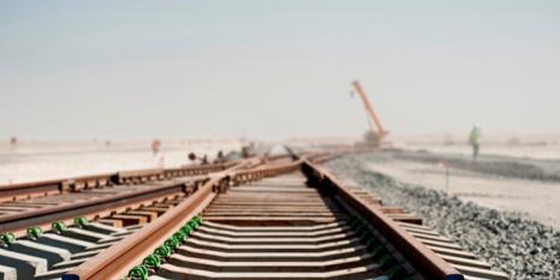The GCC railway connection will soon be a reality with many lines already set for completion by 2018, said Dr Abdullah Belhaif Al Nuaimi, the UAE Minister of Public Works and Chairman of the Federal Transport Authority (FTA).
“Though 2018 has been set as initial deadline for the GCC rail to take shape, the UAE is steps ahead the scheduled timetable.”
The UAE and Saudi Arabia are in line with the set schedule but not all Gulf countries will be ready by 2018, and hence 2020 has been set as maximum timeframe for the project, he added.
“The primary total cost of the GCC rail stands at $20 billion. However, the expenses are expected to jump to Dh100 billion or around $30 billion,” Dr Nuaimi told Khaleej Times.
Dr Nuaimi said the first of the three-phase Etihad Rail has been accomplished whereas the Dh700 million budget of the second phase has been allocated by the federal authorities.
Vasile Nicolae, Expert Trains & Railway Systems, told Khaleej Times that the main rail line connecting the GCC countries from Kuwait to Muscat is 2,100km. “Each of the six member states of the gulf will have some other local lines connected with this.”
If a train is coming from Saudi Arabia, and crossing the UAE to Oman, it will cover 695km, he added. “However, the part of the GCC rail passing through the UAE is 1,200km.”
The main idea behind this project is that the train does not stop at any of the GCC borders; sort of origin and destination, he stated. “The railway station will be built like an airport, and all the clearance will be done only at the origin and destination stations.”
Nicolae said the passenger train is built to run at 200kmph against a lower speed of 120kmph for the freight train. But some trains may run at 80kmph depending on the freight. “The number of trains and wagons will vary according to the market rules and number of passengers and cargo weight.”
The first stage of the GCC rail in the UAE, extending over 260km, has been finished, he said. “Everything is on place, including tracks, signals, wagons, and locomotives, and hence the trial operation will start soon from Habshan to Ruwais in the Western Region of Abu Dhabi.”
The country will be connected with the international borders in the second phase of the project, he said. “The second stage is more than 600km long while the rest, about 574km, will be built in the third phase.”
Noting, Dr Nuaimi said the FTA is drafting several pieces of regulatory legislation requiring regional consensus to avoid any barriers that may hinder the rail transport sector and to maintain the seamless operation of the railway market in the GCC.
“The UAE rail law has been finalized and is expected to be approved by the authorities in the fourth quarter of this year.”
Legislation is required to put in place mutual recognition of railway operator licenses and safety permits throughout the GCC, he elaborated. “It also establishes common rules for train driver licensing, for the operation and maintenance (mutual acceptance of locomotives and rolling stock) and for the transport of goods and passengers.”
Dr Nuaimi said the FTA has drafted a federal law for regulating the rail sector covering the characteristics and features of the railway system, railway finance, railway operator licensing regulations, monitoring railway safety at the federal level and dispute resolution mechanisms.”
Khaleej Times
5 March






















































